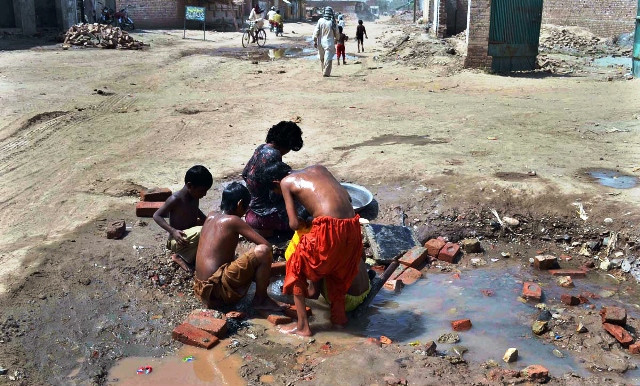With fuel and electricity shortages already rampant, one of the least surprising local stories in recent weeks was that water is in short supply in the capital and Rawalpindi. The latter has a much more acute shortage, around 15 million gallons a day or 26% of total demand.
While an inexact measure, working on the assumption that one in four Pindi residents doesn’t have any water, one can get a better grasp of how bad things are.
One may wonder, quite justifiably, why nobody saw this coming. Well somebody did and for once, it wasn’t just the experts, but the government.
In 1988, the government proposed a dam just outside the city to compensate for the ageing Rawal Dam, which was and is still shared between the twin cities. Daducha Dam would have provided 25 million gallons of water a day if built, solving any water problems 24 years back, and enough to have covered up Pindi’s water shortage even today. However, public service is low on the priority list of our elected officials, and it is common knowledge that whenever the party in power changes, almost all projects initiated by the former ruling party are shelved.
Never mind the waste of time and money on those projects, because the perceived notion is that anything that makes the opposition look bad must be good, especially since the common voter is too busy trying to keep the house running to look into the real reasons such projects are shelved.
The media, with all its independence, has created a bit of awareness, but still largely focuses on the ‘easy stories’, which don’t require a lot of research, instead relying on he said-she said.
Although rising and falling governments were indeed a factor in the delay of this project, when surveying finally began in November 2010, a new problem came up. The proposed site of Daducha Dam is now owned by the Defence Housing Society.
This in itself shouldn’t have been a big problem, since work in the area had not begun and the government could compensate DHA with land elsewhere, but prime land being prime land, DHA authorities refused. Instead, the military-run housing society suggested the provincial government build a dam elsewhere, while they build a dam exclusively for DHA residents at the Daducha site.
So basically, a housing society wants to build a dam big enough to support half of the city population but devote it to only a tiny portion of the population. Efficient utilisation of resources for the public good be damned, a certain category of Pakistani citizens apparently deserves more of everything as a birthright.
With Rawal Dam already past its 50 year useful life, Rawalpindi desperately needs a dam, not today or tomorrow, but yesterday. Instead, a swimming pool in each home and lush green golf courses apparently take precedent over drinking water for the dirty masses. Although they’d probably be cleaner if they had water to bathe with.
A related story from a couple of weeks back discussed how some persons who had legally acquired plots from the Punjab government near GHQ were denied permission to build there because they presented a security risk. However, the real story was that the army wanted to take possession of the plots at cut-rate prices, which the Punjab government shockingly refused. Don’t they know the army always gets its way?
Rawalpindi city may be home to -the army’s headquarters, and it does house a number of retired soldiers, but those soldiers are no more (or less) citizens of Pakistan than every other Pindiite. I have roots in the city and in the military, and if there is one thing I learnt from George Orwell’s Animal Farm, it is that you cannot create an egalitarian society when certain segments of society are guaranteed special treatment. “All animals are equal, but some animals are more equal than others” may be the rule in Pakistan, but it has to change.
Read more by Vaqas here, or follow him on Twitter @vasghar
Pindi’s Orwellian water crisis
Swimming pools in homes and lush green golf courses apparently takes precedent over drinking water.


COMMENTS
Comments are moderated and generally will be posted if they are on-topic and not abusive.
For more information, please see our Comments FAQ